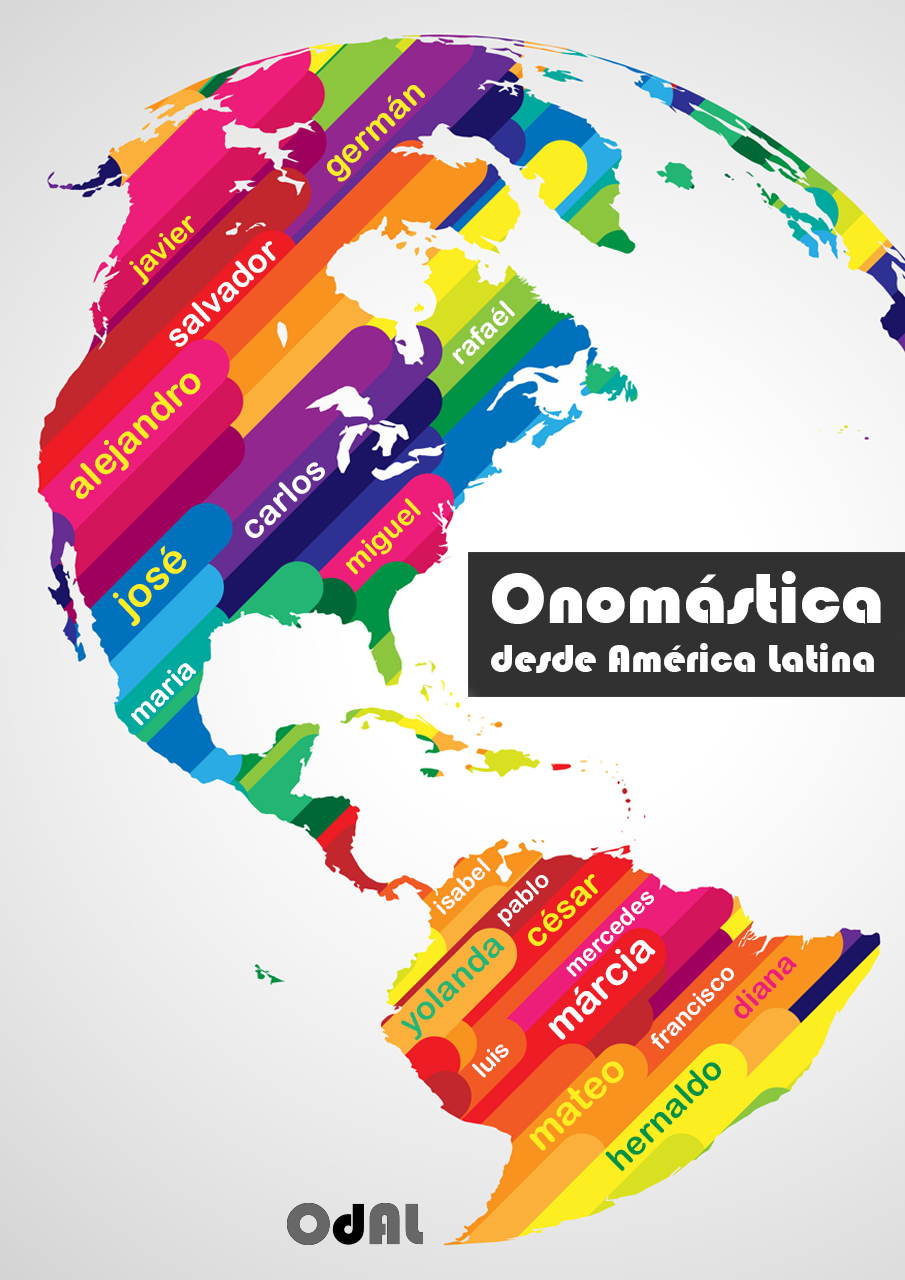Particularidades del uso de nombres bíblicos en el repertorio cubano del siglo XIX
Particularities about the use of biblical names in the Cuban repertoire of the 19th century
DOI:
https://doi.org/10.48075/odal.v5i1.33064Keywords:
19th century, given name, biblical name, denominative system CubanAbstract
The presence of biblical names in the Cuban denominative system of the 19th century is related to historical, political and social conditions of the time, such as the officialization of the act of naming by the Catholic Church through baptismal certificates and the absence of a state body that filled this role for most of the century. Due to these particularities, it was necessary to construct the concept of a common given name, to facilitate work with documents of non-religious origin. To identify some peculiarities about this type of names, the data of 5,287 people collected in an official military document of the time was studied. The work with this corpus showed the need to carry out a normalization process through which the variant with the highest frequency of appearance was used to represent the name and in special cases the one that best adjusted to the spelling standards in force today. After analyzing this corpus, a total of 57 simple names of biblical origin were identified. A high concentration of use was evident for some names, of which José, Juan, Pedro and Rafael exceed 2% frequency. Most of these names coincide with the members of the Holy Family spread by Catholicism, the disciples of Jesus and other apostles of the New Testament. Regarding compound names, the preference was identified for the names Juan and José, in most cases as the first compositional element of the given name. As a result of the research, a group of orthographic variations were noticed, among which the hesitation at the accent level stands out and to a lesser extent consonantal changes. This study in general aims to provide new tools for the characterization of the Cuban anthroponymic system.
References
Andrés, A. S. (1997). La política colonial española durante la segunda mitad del siglo XIX: modelos teóricos, objetivos y estrategias. Spagna contemporanea. Rivista semestrale di storia, cultura, istituzioni, (11), 51-64.
Bahamonde, Á., & Fernández, J. G. C. (1993). Hacer las Américas. Las elites coloniales españolas en el siglo XIX. Historia Contemporánea, (9).
Bahamonde, A. y Martínez, J. A. (1994) Historia de España. Siglo XIX. Madrid: Cátedra
Barcia Zequeira, M. D. C. (2003). Sociedad imaginada: La Isla de Cuba en el siglo XIX. Contrastes, Vol. 12, 2001-2003.
Boyd-Bowman, P., (1970). Los nombres de pila en México desde 1540 hasta 1950. Nueva Revista de Filología Hispánica, 19 (1), 12-48. Recuperado de https://nrfh.colmex.mx/index.php/nrfh/article/view/437
Campo Yumar, L. R. (2020). Necesidad de una política lingüística para la normalización de la construcción y escritura de los nombres de pila. Análisis del modelo jurídico cubano desde la perspectiva comparada/Need for a linguistic policy for the normalization of the construction and writing of first names. Analysis of the Cuban legal model from a comparative perspective. Islas, 62(195), 78-97
Campo Yumar, L. R. (2023). Reflexiones en torno al desarrollo y las perspectivas de los estudios antroponomásticos en Cuba. Islas, 65(204), e1295-e1295.
Demsky, A. (2017). Nombres bíblicos: Pasado y presente. Hamsa. Journal of Judaic and Islamic Studies, (3).
Lisyová, O. G. (2011). Algunas reflexiones sobre la influencia socio-cultural en la motivación de los nombres de pila (análisis contrastivo de las lenguas eslavas y el español). Moenia, 17.
Ponferrada, G. E. (1990) El nombre propio de Dios. Sapientia, Vol. XLV.
Proenza-Reyes, M., & Rodríguez-Corria, R. (2016). Pasado, presente y futuro del Registro del Estado Civil en Cuba. Santiago (139) 54-79.
Roloff Milofsky, C. (1901). Índice alfabético y defunciones del Ejército Libertador de Cuba. La Habana: Imp. Rambla y Bouza.
Rosales Novoa, S. (2009) Nombres de pila santiagueros nacidos de 1960 a 1985. Tesis de Maestría. Santiago de Cuba: Universidad de Oriente.
Santa Biblia, Reina-Valera (1960)
Sarusky, J. (2005) El arte de poner nombres en Cuba hoy. Revolución y Cultura, 3,31-35.
Torres, E. y Loyola, O. (2001) Historia de Cuba. 1492-1898. Formación y Liberación de la Nación. La Habana: Pueblo y Educación.
Tristá Pérez, A. M. y Cárdenas Molina, G. (2016) Diccionario ejemplificado del Español de Cuba. Tomo II. La Habana: Editorial de Ciencias Sociales.
Zanetti, O. (2013). Historia mínima de Cuba. México: El Colegio de México, AC.
Downloads
Published
How to Cite
Issue
Section
License
Copyright (c) 2024 Betsabeth Mariam Zaldivar Aguilera

This work is licensed under a Creative Commons Attribution-NonCommercial-ShareAlike 4.0 International License.
Creative Commons Copyright Notice
Open Access Journals Policy
Authors who publish in this journal agree to the following terms:
1. Authors retain the copyright and grant the journal the right of first publication, with the work simultaneously licensed under the Creative Commons Attribution License that allows the sharing of the work with recognition of authorship and initial publication in this journal.
2. Mandatory authorities to assume commitments, for non-exclusive distribution of the version of the work published in this journal (eg, publish in an institutional repository or as a book chapter), with recognition of authorship and initial publication in this journal.
3. Authors are allowed and encouraged to publish and distribute their work online (eg in institutional repositories or on the personal page) at any point before or during the editorial process, as this can generate productive changes as well as increase impact and citation of the published work (See The Effect of Open Access).
Creative Commons License
This work is licensed under a Creative Commons Attribution-NonCommercial-ShareAlike 4.0 International License, which allows sharing, copying, distributing, displaying, reproducing, a whole or parts as long as it has no commercial purpose and is cited by authors and a source.

